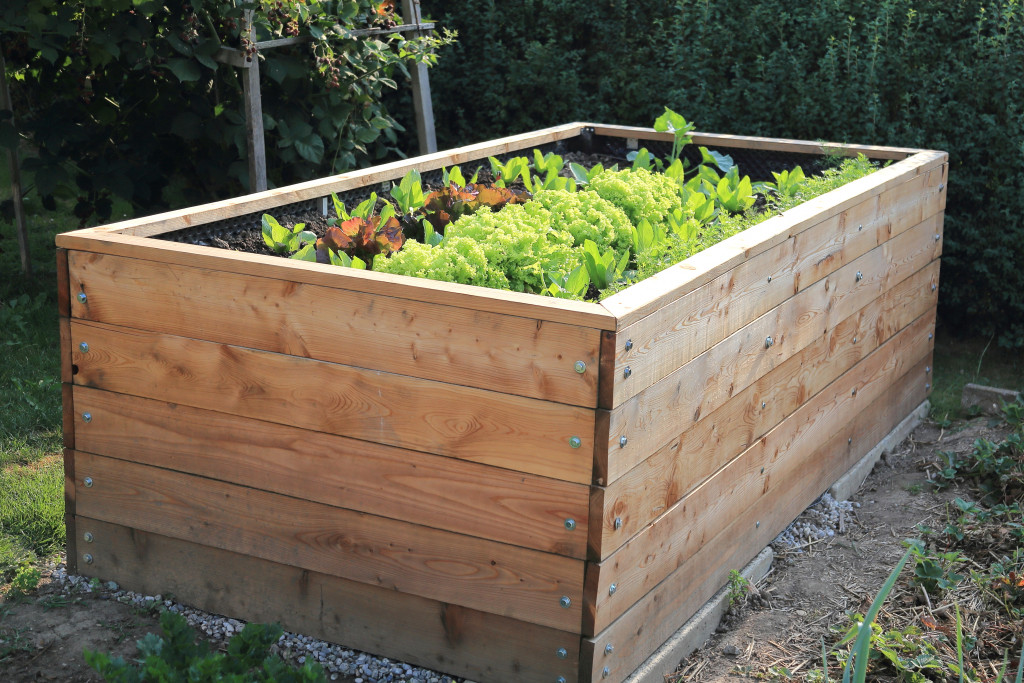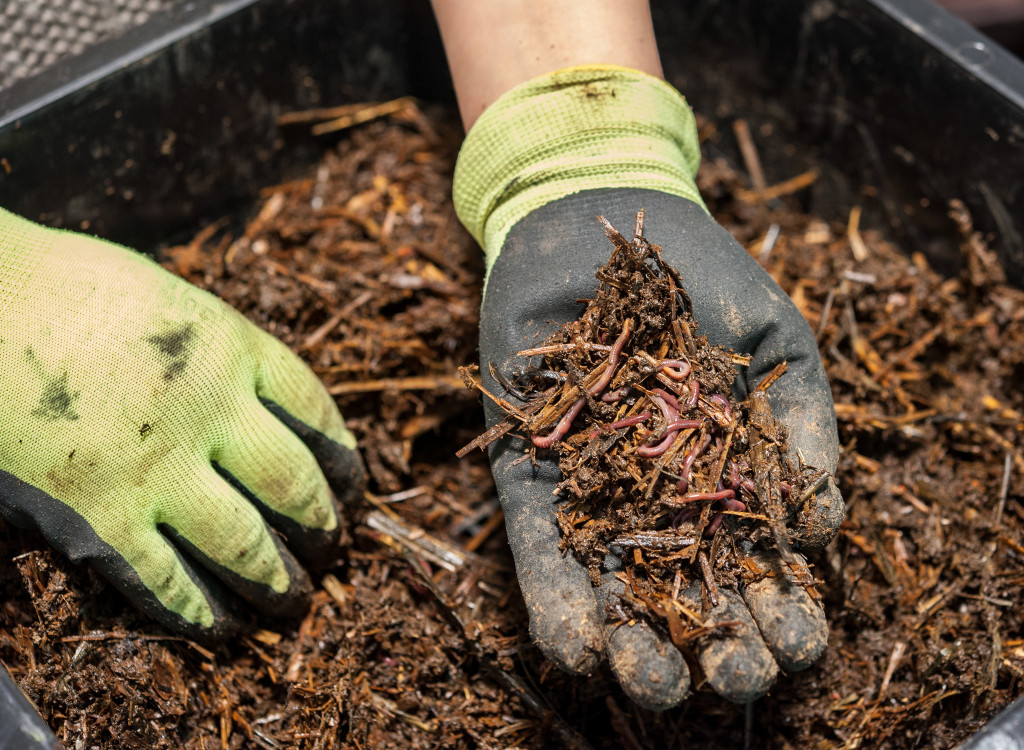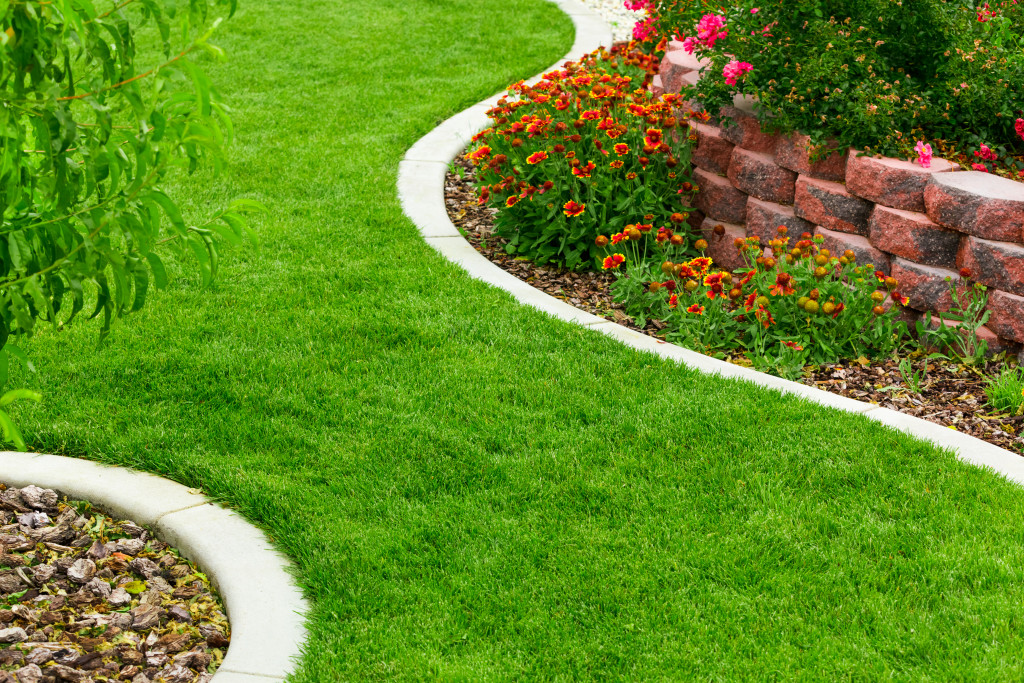- Choose drought-resistant plants, group by water needs, and enrich the soil with organic fertilizers for low maintenance.
- Raised beds and mulching significantly reduce garden maintenance by controlling weeds and aiding drainage.
- Installing a drip irrigation system ensures efficient watering, reducing effort and aiding plant health.
- The right selection of fertilizers, including compost, fish emulsion, bone meal, and worm castings, promotes strong plant growth with less upkeep.
Who doesn’t want a beautiful garden to enjoy on a sunny afternoon or to look at from the window? But maintaining a garden can be hard work. Fortunately, there are ways to create a garden that’s both beautiful and low-maintenance. This blog will provide essential tips to help you create a stunning garden that’s easy to maintain so you can enjoy it without spending all your time working on it.
Choose the Right Plants
Picking the right plants is key to creating a low-maintenance garden. You want to choose plants that are easy to care for and don’t require a lot of maintenance. Some great options include succulents, flowering shrubs, and ornamental grasses.
These plants are tough, drought-resistant, and require very little watering. In addition, they add color and texture to your garden all year round. You can also buy bulk wildflower seeds to create a stunning display of flowers that require minimal care. These flowers are native to your area and will attract pollinators, adding beauty and biodiversity to your garden.
Group Plants by Water Needs
Grouping plants with similar watering requirements together can help reduce the amount of time you spend watering. Arrange your plants based on their water needs so you can water them all at once. This trick will also help with proper drainage, preventing over-watering or under-watering.
Use Raised Beds

Raised beds are a great way to create a low-maintenance garden. They help with drainage, prevent soil compaction, and make it easier to control weeds. You can even use raised beds for smaller gardens or container gardening. Raised beds are also great for growing vegetables and herbs, giving you a fresh supply of produce without the hassle of a large garden.
Add Mulch
Mulch is a wonderful addition to any garden. It helps retain moisture, fight off weeds, and optimize soil temperature, all while adding an attractive finishing touch. Choose a mulch that complements your garden theme or color scheme while keeping the soil moist.
Install an Irrigation System
Installing an irrigation system may sound like a daunting task, but it’s easier than you think. Drip irrigation systems are not only water-efficient, but they’re easy to install and maintain. These systems provide your plants with the right amount of water without excessive watering, which is great for low-maintenance gardens. It’s also a good solution if you go away for a few days and don’t have someone to care for your garden.
Choose the Right Fertilizers
Using the right fertilizers can also help reduce maintenance in your garden. There are many organic options available that provide your plants with the necessary nutrients without harming the environment. Here are four of the best organic fertilizers to consider:
Compost

Compost is a natural and organic way to enrich your garden soil. It’s easy to make at home or can be purchased in bags from your local gardening store. Simply mix it into the soil, and it will provide your plants with essential nutrients.
Fish Emulsion
This is made of fish waste and provides a high concentration of nitrogen, phosphorus, and potassium – essential nutrients for plant growth. It’s also easy to apply and doesn’t require any mixing.
Bone Meal
Bone meal is a slow-release fertilizer made from ground-up animal bones. It’s high in phosphorus, which is necessary for root development and flower production. Use it when planting new plants or mix it into the soil in spring for established plants.
Worm Castings
Worm castings are a natural and nutrient-rich fertilizer made from worm waste. It helps improve soil structure, provide essential nutrients, and promote healthy plant growth. You can use it as a top dressing or mix it into the soil.
With the right fertilizer, your plants will thrive without requiring constant fertilization or maintenance.
Creating a beautiful and low-maintenance garden is not just a dream but an achievable reality. With the right plants, effective grouping based on water needs, use of raised beds and mulch, installation of an efficient irrigation system, and the right choice of fertilizers, you can have a thriving garden that requires minimal upkeep.
Remember, gardening doesn’t have to be laborious; instead, it should be an enjoyable, therapeutic hobby that brings you closer to nature. So, implement these tips, and you’ll have a garden that provides you with joy, serenity, and a sense of accomplishment without demanding all your free time.

